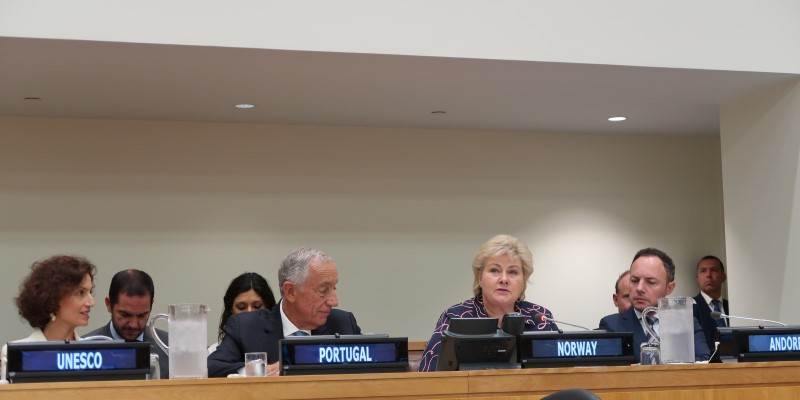Check against delivery
Excellencies, ladies and gentlemen,
Many years ago, the Norwegian author and Nobel laureate Sigrid Undset wrote:
Everything changes, but the human heart.
As Undset made clear, the future may be uncertain and unfamiliar.
But the experience of being human will, in essence, remain the same.
We all want to belong.
We want to feel a sense of purpose.
And we want to learn.
Today, the world is not on track to achieve SDG 4 on education.
I therefore welcome UNESCO’s initiative to reflect on how education can best serve humanity and the planet in the future.
The world may be changing rapidly, but some things – like the importance of education – will remain the same.
To achieve SDG 4 on education, we need to mobilise more international financing for global education.
But countries must themselves invest a higher share of their domestic resources in education.
We also need to consider how these investments can be most effective.
In my view, there are three areas we must focus on to make education ‘fit for the future’:
First, we must ensure that everyone is included.
We cannot speak about the future of education without mentioning those who are left behind. For example:
Only 2 % of girls in the world’s poorest countries attend upper secondary school.
And more than 33 million children living with disabilities are out of school.
Everyone has a right to education.
Secondly, we must address the learning crisis and the barriers to learning.
We must ensure that there are more, and better, teachers.
We must make sure that children learn what they need to know.
And we must give them the confidence that they will be able to create a good future for themselves.
Thirdly – we must provide everyone with a quality education.
We need to harness the potential offered by technology.
We need future generations who can lead the digital revolution.
Who are able to use – and create – new technologies.
Having said this, technology may benefit some people and not others.
We therefore need inclusive technologies.
We need platforms and products that are accessible for all.
Norway led the development of a Global Digital Library that provides free reading materials in over 30 languages.
This library can also be used by people with visual impairments, and it includes sign-language videos.
Everything may be changing around us, but let us remember that at least two things will remain the same: the human heart and the importance of education.
I warmly welcome this initiative by UNESCO to better prepare us for the future of education.
Thank you.
